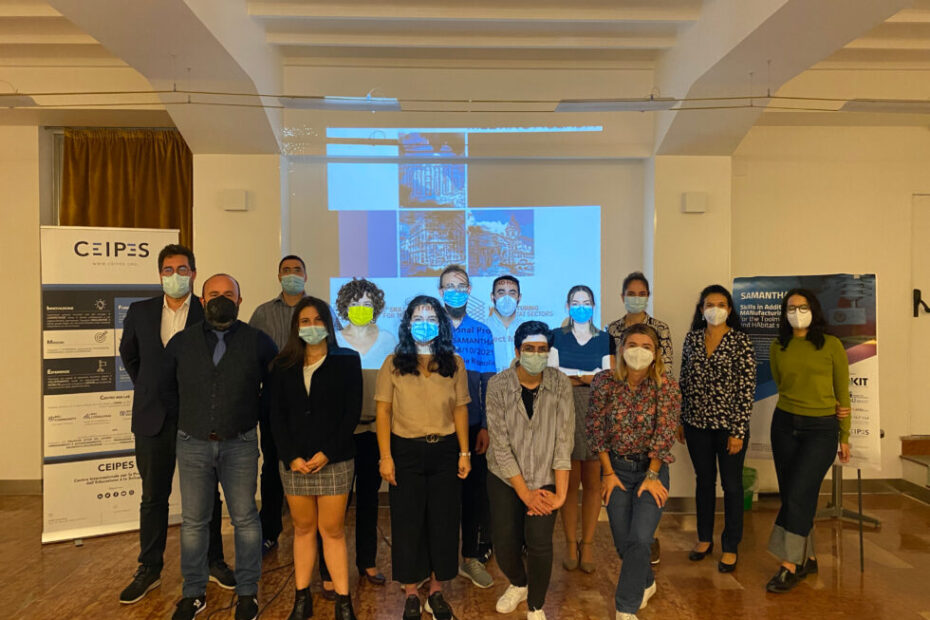After more than two years, the consortium of SAMANTHA project partners met in Palermo on 8th October for the fifth transnational meeting of the project. This time, the CEIPES hosted them and gave them a warm welcome in the city of Palermo.
SAMANTHA aims to develop a new training programme that includes high-tech T-shaped skills for a successful implementation of additive manufacturing (AM) within the curricula of highly qualified staff and is a project funded by the Erasmus+ programme, Key Action 2 (Strategic Partnership for Innovation and Exchange of good practices) and organised by a consortium of partners from different European countries: Karlsruher Institut für Technologie (KIT) (Germany), ILI -FRIEDRICH-ALEXANDER-UNIVERSITAET ERLANGEN NUERNBERG (Germany), AMUEBLA- AGRUPACION EMPRESARIAL INNOVADORA DE FABRICANTES DE MUEBLES Y AFINES DE LA REGION DE MURCIA (Spain), Cenfim – CENTRE DE DIFUSIO TECNOLOGICA DE LA FUSTA I DEL MOBLE DE CATALUNYA (Spain), CEIPES (Italy), Centrocot – CENTRO TESSILE COTONIERO E ABBIGLIAMENTO SPA (Italy) and TECOS Razvojni center orodjarstva Slovenije (Slovenia).
Thanks to the excellent cooperation of the partnership composed of different expertise, it was possible to take stock of the already developed materials and the results obtained in the first two years of project implementation.
In this regard, the partners discussed and reviewed the e-learning platform and the material developed for the course, which is divided into two distinct sections: the first one concerning the acquisition of technical skills related to the field of additive manufacturing and the second one concerning the acquisition of soft skills. The advantage of this course is that it has developed modules that are useful in the fields of habitat and toolmaking.
After establishing and redefining some aspects of the course, they discussed the development of the mentor guide that will be crucial during the pilot phase of the project. In the following months, the various partners will be involved in the search and selection of 4 key people who will then follow and support pupils and teachers during the testing phase.
The second part of the meeting was focused on the financial and managerial part of the project.
The partners will meet again in Slovenia for the penultimate transnational meeting.
For more information, please visit the project website.
